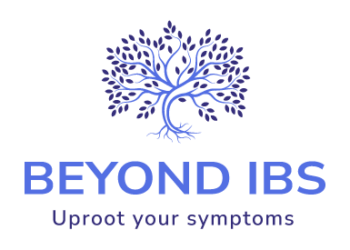A growing new global movement to understand and reverse the why behind symptoms
Read MoreNew health paradigm – prevent and reverse
Empower your health and well-being
Conventional medicine is incredible, we have so much to be grateful for, everyday it saves thousands of lives. But what if, as well as conventional medicine we could grow our understanding of what medicine is to include prevention and reversal? What if we could also therefore create a new sense of empowerment with chronic symptoms, like IBS.
When we think about ‘managing symptoms’, we usually think of medication. But symptom relief and management does also exist within alternative or complementary approaches. I have a background as a Thai massage therapist and increasingly noticed that with some of my clients I was temporarily relieving their symptoms, this is partly what inspired me to learn Root Cause Health Coaching™ and lifestyle medicine.
What is lifestyle medicine?
Lifestyle medicine is an evidence-based approach to prevent and reverse chronic disease. It is now supported by medical doctors from all over the globe. Dean Ornish in the US has a long history as a medical doctor, but wanted to do more to prevent illness. He founded the four pillars of lifestyle medicine, which states that: lifestyle choices, stress and our social support all contribute to our symptoms or wellness.
The root cause approach is much more than managing symptoms through diet, sleep and exercise. We are integrated and complex and our habitual thinking patterns, need for social connection, stress, traumas and unresolved emotions all play a role in our health. There is a lot of research that supports how our health and well-being are affected by all of these factors. For example, evidence now shows that loneliness impacts our health as much as 15 cigarettes per day.
It's not "just" stress
We now know that by exploring all of these aspects of lifestyle and health:
- Unresolved emotions and stress
- Limiting thoughts
- Lifestyle choices that reduce vitality
- Removing toxins from our environment and relationships
we can reverse many chronic symptoms that we previously labelled as lifelong or ‘stress related’ and consequently addressed with symptom relief.
People are slowing the onset of degenerative diseases and even reversing Type 2 diabetes through lifestyle-based programs that are supported by the UK government.

Why does it matter?
85%
of adults experience stress regularly.
In the United Kingdom in 2019, over 8.6 million appointments were due to chest pains which were driven by stress-related mental illnesses.
Furthermore, circulatory issues related to stress-related illnesses accounted for around 6.8 million appointments, while 2.8 million made appointments with their GP because of musculoskeletal issues caused primarily by stress.
Many types of “medicine”
We can address chronic symptoms and increase longevity and quality of life via: increased quality time with loved ones, releasing unresolved emotions, letting go, empowering ourselves with hope about change, creating a sense of purpose, a nourishing diet, stress management, increased movement, regular sleep and even time in nature… We are born with this knowing.
An empowering shift in responsibility
We may have learned that our body is a vessel for us or a machine that wears out, or composed of only physical building blocks. These views underpin the old health paradigm. We may therefore think that our health is affected by external influences only and therefore needs external experts to ‘fix’ it (medication or massage!)
Imagine how it could be to know that you can work with your body and it’s inner wisdom to fully self heal… that you have everything within to reverse your symptoms, by listening to your body, understanding the why and addressing this at the root. The root cause approach is all about empowering people – as the experts in their own symptoms.
Gradual lifestyle changes + addressing the root cause = symptom change
If you would like to understand and address the root cause of digestive symptoms, please get in touch.
You may also like...
Daily reconnection and self care
A daily practice to connect more with your gut and emotions. Begin to loosen the stress and experiences that keep...
Read MoreThe why behind IBS
Why IBS symptoms can keep recurring. Our body can self-heal from most chronic illnesses if we create the right conditions...
Read MoreOther studies show that:
- “Those with IBS have an increased response to stress”. (Which is also an indication of past trauma).
- “Strong emotions like stress, anxiety, and depression trigger chemicals in the brain that turn on pain signals in your gut that may cause your large intestine to react.”
- “Different types of stress play important roles in the onset and modulation of irritable bowel syndrome (IBS) symptoms.”



